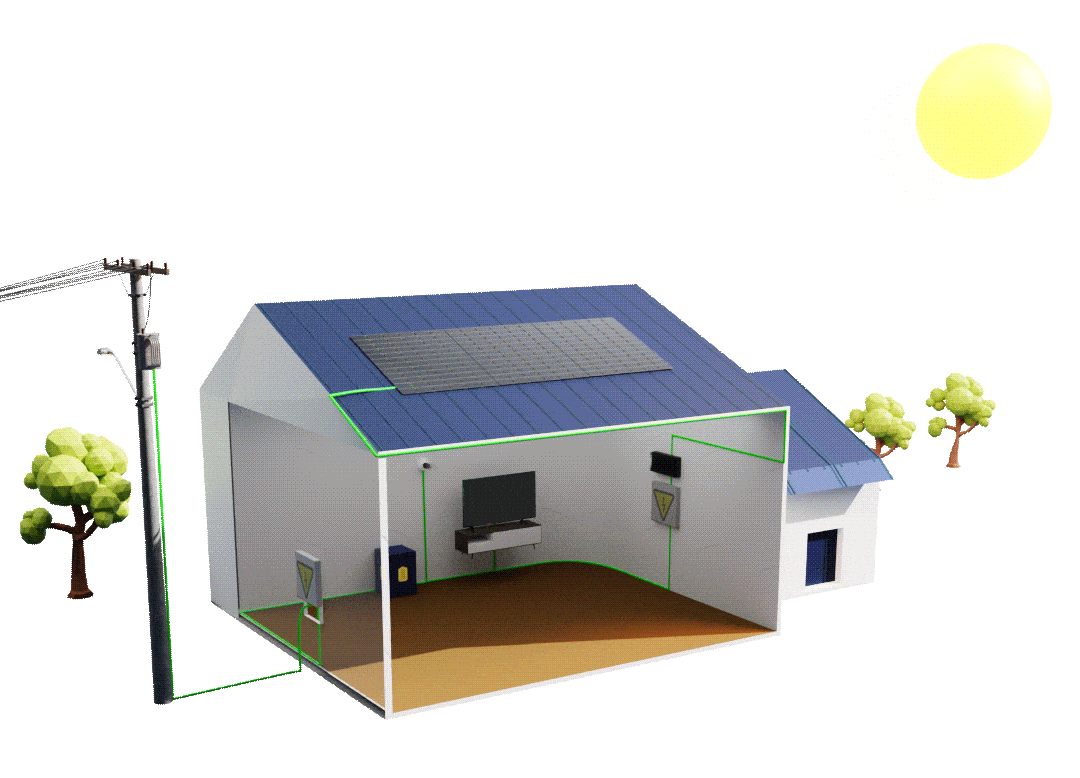
A solar photovoltaic (PV) system is required to be rigorously tested as part of the commissioning process and periodically throughout its subsequent lifespan. This is to test both the quality of the installation and the quality of its performance. Solar panels are usually one or more solar PV cells connected in series, and because they are located outside in order to catch and absorb the sun’s radiant energy, they are exposed to the elements. This can damage and corrode the modules and the components of the solar PV system, while an accumulation of dirt can also damage the solar panels. This can compromise both the safety and performance of the system.
Solar PV systems are designed to last over 20 years, and they need to perform consistently throughout that period in order to generate the energy savings required. Solar panels are invested in to create power gain and save energy drawn from the national grid, this also creates carbon savings and helps the user qualify for grants and incentives. So continuously verifying system performance is essential. But the priority is safety, and because the panels are connected to the electricity grid and generate electricity themselves, maintaining the safety of the system is also essential and strictly regulated.
What are the two types of solar PV testing?
The first type of testing is a visual inspection, which should be carried out upon commissioning and frequently during operation. This inspection needs to identify damage to the modules, cable connectors, wiring and other PV components, such as the invertor.
Secondly, the DC current side of the system needs to be tested, and this is done ‘live’ as the DC source is the sun’s radiant energy, which of course can’t be turned off. This testing is also split into two types; system testing and measurement and system performance testing.
- System testing and measurement
This is a series of standard electrical tests to check the system has been installed safely and correctly, and that this continues at frequent intervals during operation.
- Continuity and resistance testing – to verify the integrity of the earthing and grounding
- Polarity – to check the system is correctly connected to other components in the system, such as the invertor, charge controller or battery
- Voltage and current testing – to verify the PV system is operating within the design spec, using both open circuit voltage and short circuit voltage testing
- Insulation resistance testing – to identify faults and damage to the integrity of wiring, cabling and equipment in the system.
- System performance testing
This is a series of tests carried out to check that the solar PV system is operating in accordance with the design spec, and against STC (standard test conditions) figures supplied by the manufacturer. This is a set of standard system performance measures that the system ‘should’ achieve in optimal environmental conditions. In reality, these conditions won’t occur in real time situations and locations, but we can use the STC figures to compare how our system is performing and what return-on-investment we should expect to see over time.
- Irradiance testing – This is the use of an irradiance meter to identify the best location to initially install a solar PV system, ie. where direct, uninterrupted sunlight is maximised and is sufficient and consistent. Periodic readings can be taken to assess if the same irradiance levels are still being achieved.
- I-V Curve – Using an I-V curve tracer we can measure the solar I-V curve, which is the relationship of current and voltage readings and the characteristics of the semi-conducting devices at various points.
So the system testing and measurement tests can tell us whether the solar PV system is safe, while the system performance tests tell us whether the system is performing well. It is possible for the system to be perfectly safe and well installed and maintained, but not generating the electricity savings expected. This therefore also means that diagnostic and remedial solutions are different for each set of tests.
There are various solar PV testing instruments supplied by Test Instrument Solutions, including the PVCHECKs & PVCHECKsPRO which are multi-function testers capable of carrying out all the safety and performance testing required in one instrument. Individual curve tracers and irradiance meters can also carry out these tests as specialist single-function test instruments. So browse our range of solar PV test instruments and order online today.
Product Demonstration
Below is a product demonstration video of the TIS PV ISOTEST product offered by Test Instrument Solutions:
Please note that this section is for information purposes only. Anyone using equipment referred to in this section must be suitably qualified and/or experienced within the respective field. If in doubt before use, please consult a qualified electrician or engineer & thoroughly read all instruction booklets.